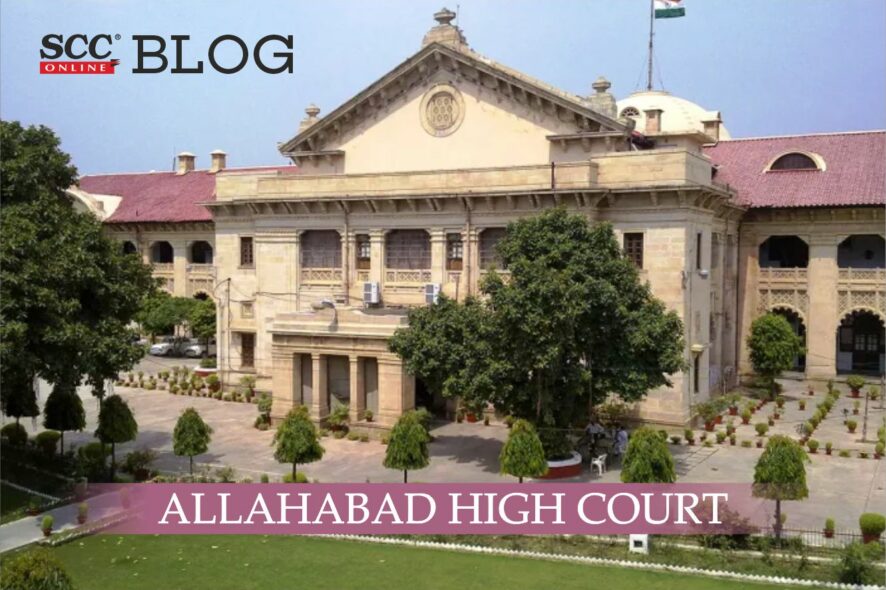Allahabad High Court: In an appeal filed by Bharatiya Janata party MLA Vikram Singh Saini against the judgment passed by the Special Judge MP/MLA Court convicting him for the offences under Sections 147 148, 336 read with 149, 353, 504, 506 of the Penal Code, 1860 (‘IPC’) and under Section 7 Criminal Law (Amendment) Act, Samit Gopal, J. said that there is a full-fledged trial conducted after which Vikram Saini has been convicted, and the ground that he by the conviction will stand disqualified as per the Act, 1951 and will not be able to fight the elections, is no ground to suspend the conviction.
The Court noted that the ground as taken for the prayer for suspension of conviction is that Vikram Saini is a politician and was involved in these cases because of the political rivalry between two political parties. Further, the Election Commission has declared the schedule for by-elections in his constituency and he is allowed by the public constituency to fight the elections.
The Court referred to Section 8 of the Representation of People Act, 1951 (‘Act, 1951’), and said that the disqualification of a person under sub-sections (1), (2) and (3) of Section 8 of the Act, 1951 is due to conviction for one of the offences as mentioned in the section. The maximum punishment awarded to Vikram Saini is two years imprisonment which results in his disqualification as per Section 8(3) of the Act, 1951.
The Court said that the law with regards to suspension of conviction is well settled and relied on Navjot Singh Sidhu v. State of Punjab, (2007) 2 SCC 574, and on Ravikant S. Patil v. Sarvabhouma S. Bagali, (2007) 1 SCC 673, wherein it was held that “an order granting stay of conviction is not the rule but is an exception to be resorted to in rare cases”
The Court noted that in the present case the ground as is taken for suspension of conviction is that if the same is not granted Vikram Saini will remain disqualified under the Act, 1951, and said that the law as is continuously being held, reiterated and referred too is that powers of suspension of conviction should be exercised in rare cases only.
Further, it was said that Vikram Saini was convicted for rioting, rioting armed with deadly weapon, endangering life or personal safety of others, assault or criminal force to deter public servant from discharging his duty, intentional insult with intent to provoke breach of peace and criminal intimidation which had caused a law-and-order problem and had thrown the peace of the citizens out of gear.
The Court also said that the offences under the Penal Code covered by the Act has the potential to destroy the core values of a healthy democracy, safety of the State, economic stability, national security, and prevalence and sustenance of peace and harmony amongst citizens and many others. Further, the criminal activities resulting in disqualification are related to various spheres pertaining to the interest of the nation, common citizenry interest, communal harmony, and prevalence of goods governance, and merely by pleading that Vikram Saini by the conviction will stand disqualified as per the Act, 1951 is no ground to suspend the conviction.
[Vikram Singh Saini v. State of U.P., – 2022 SCC OnLine All 773, decided on 22-11-2022]
Advocates who appeared in this case :
Aditya Upadhyay, Advocate, Counsel for the Appellant;
Government, Advocate, Counsel for the Respondent.
*Apoorva Goel, Editorial Assistant has reported this brief.







